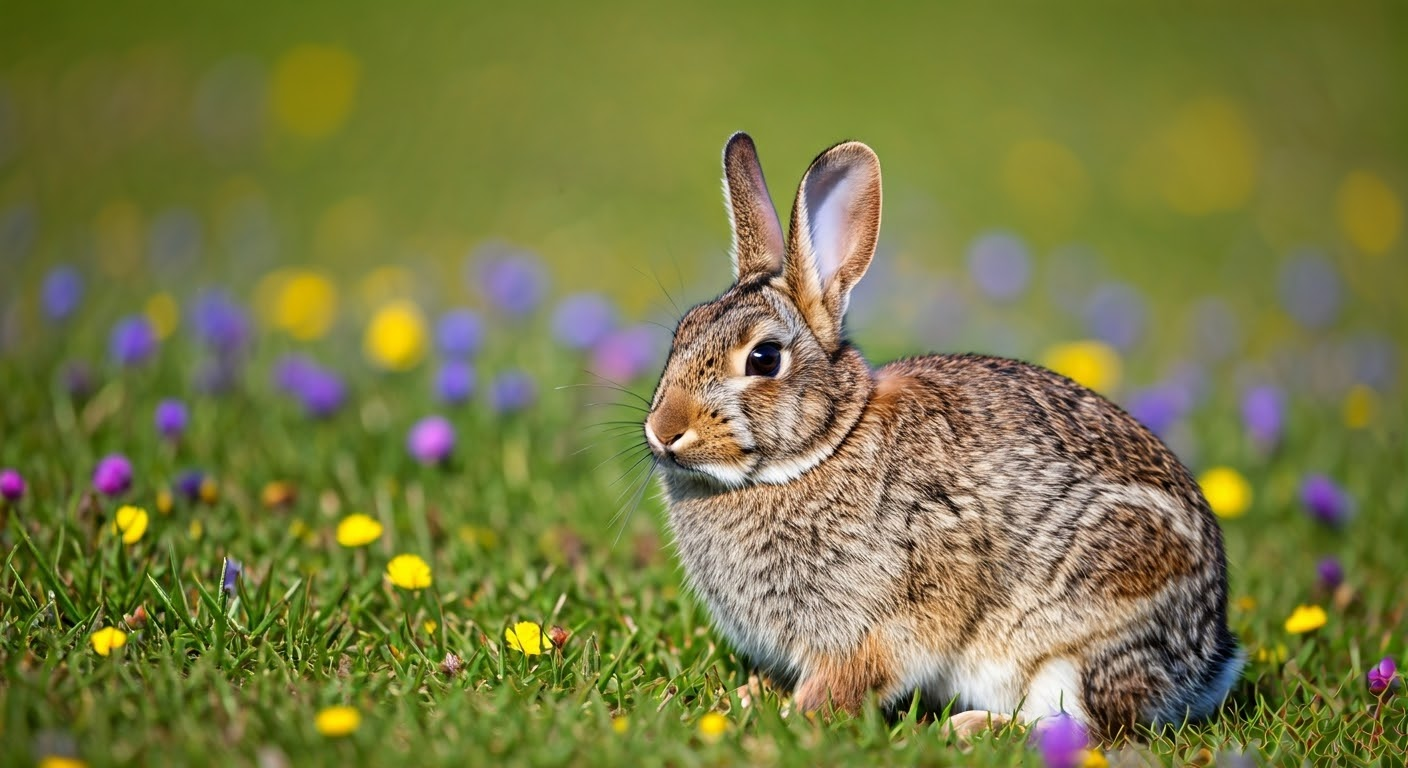Key Highlights
- A rabbit’s pregnancy, called the gestation period, usually lasts about 28 to 30 days.
- Smaller rabbit breeds often have 4 to 8 baby rabbits in a litter. Larger breeds can have 12 or more baby rabbits!
- Signs of pregnancy in rabbits can be hard to notice. Always check with a veterinarian to confirm.
- Female rabbits can become pregnant again very soon after giving birth.
- Spaying or neutering is the best way to stop unwanted pregnancies in rabbits.
Introduction
Are you interested in how bunnies start their lives? It is good to know the time a rabbit, also known as a doe, stays pregnant. This is especially important for new rabbit owners waiting for a litter. This guide will teach you about how long rabbits are pregnant. We will discuss everything from the time of conception to birth. You will also get helpful tips for caring for a pregnant rabbit and her adorable babies. Let’s get started!
Understanding Rabbit Pregnancy Duration

The gestation period for rabbits is short compared to other mammals. A pregnant rabbit carries her young for about a month. This quick process shows how nature helps rabbits to reproduce quickly and successfully.
The gestation period can vary for several reasons. These include the breed, size, and health of the rabbit. While 28-30 days is the typical time, it may change a bit.
Average Gestation Period for Rabbits
The normal gestation period for a doe is around 28 to 30 days. This short pregnancy is why rabbits can have several babies so fast! A lot of people believe rabbit gestation lasts a whole month. But we should keep in mind that every pregnancy is unique, and nature works in its own way.
During this one-month gestation, the babies, known as kits, grow fast inside the doe. When they are born, these kits are developed and ready for the world. They need plenty of snuggles and feed from their mother in the beginning. Later, they can start eating pellets and hay.
Factors Influencing Pregnancy Length in Rabbits
The usual gestation period for rabbits is about 28 to 30 days. This time can vary a bit due to certain factors. One big factor is the breed. Smaller breeds tend to have shorter gestation periods than larger breeds. A good nest box can also help make the mother feel comfortable. For instance, a Netherland Dwarf rabbit might give birth one or two days earlier than a Flemish Giant rabbit.
The breed, age, and health of the doe can change how long the gestation lasts. A healthy and well-fed doe tends to have a pregnancy that goes smoothly and on time, just like with humans.
Identifying Signs of Pregnancy in Rabbits
It can be hard to tell if a rabbit is pregnant. Unlike some animals, rabbits do not show obvious signs of pregnancy. You should watch their behavior closely. Early signs of a pregnant rabbit can be subtle and easy to miss. So, if you think your rabbit might be pregnant, keep a close eye on her.
Physical Changes and Behaviors
One of the first signs that a rabbit is pregnant is a change in what she eats. A pregnant rabbit usually eats more than usual. This extra food is important for her health and for the baby rabbits. She needs more nutrients to help the baby rabbits grow. This can include good bacteria found in her faeces. You might notice her gaining weight slowly. As the pregnancy continues, the belly of a doe will look rounder, especially in the later stages.
When it’s nearly time for her babies to be born, you will notice the doe showing clear signs of nesting. This means she is preparing a safe place for her new young ones. She will start collecting hay, straw, or soft materials to create a nest. It is normal for a doe to pull fur from her body to make her nest warm and comfortable. This behavior shows how strong her instinct to care for her babies is. To help her feel calm during this time, you can give her a nesting box. A cardboard box or a special area in her hutch works well for this.
Nest Building and Other Maternal Instincts
Nest building is a clear sign that your rabbit is pregnant. As the due date nears, her instinct to care for her babies grows stronger. She will start to create a safe and cozy space for them. You might see her acting very protective of her nesting box. If it takes a long time, she may be even more defensive than usual.
Some rabbits, called does, can act like they are making a nest even when they are not actually pregnant. This is what people call a “false pregnancy” or pseudopregnancy. It can be a bit tricky to tell. To know if your rabbit is really pregnant, look for other signs of pregnancy too.
Conclusion
In conclusion, it is good to know how long a rabbit is pregnant. This helps you breed responsibly and keep both the mother and her babies healthy. Some things can change how long the pregnancy lasts. Genetics, health, and the environment are important factors. If you can spot signs of pregnancy, like changes in the rabbit’s body and behavior, you will be able to care for them better. It is also helpful to learn about common issues that can happen during rabbit pregnancy. This way, you can be prepared for problems. Knowing when rabbits can start to breed and how to check for pregnancy is important for their health. For more tips on breeding and rabbit care, visit our FAQ section or talk to our specialists for personal help.
Frequently Asked Questions
At what age can rabbits start breeding?
Smaller rabbit breeds can become sexually mature and start breeding when they are about 12 to 16 weeks of age. But, it is usually better to wait until a doe is at least 6 months old before breeding her. This wait helps ensure she is physically and emotionally ready to be a mother.
How can you confirm a rabbit’s pregnancy?
Some physical changes and behaviors might suggest pregnancy, but the best way to know for sure is to go to a vet. A veterinarian can do a gentle check around 10 to 14 days after mating. They will feel for early signs of developing kits.
What are the common complications during rabbit pregnancy?
Complications during pregnancy are rare. However, problems can occur, like pregnancy toxemia or issues during birth. These problems can impact the health of the offspring. It is important to work closely with a vet who understands rabbits. A vet can provide prenatal care and help address any concerns quickly.

Hi, I’m Sondip,
I’m a writer who loves to help people solve their problems. I write about small animals like mice and other small animals and even pests.

